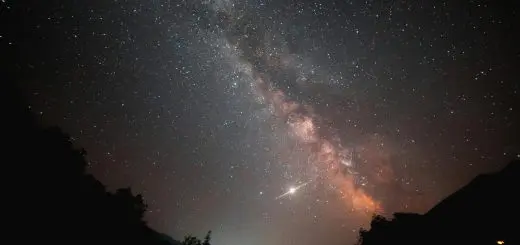The Story of Tāwhirimātea: Māori God of Weather and Storms

Looking for more amazing products? Check out our online store and explore our collection here! Happy shopping!
Before diving in, please note: This post is for informational purposes only. If you’d like to know more about how we approach topics, feel free to check out our friendly Disclaimer Page.
Hey there, amazing readers! 
We’re committed to delivering quality posts, and your support (even just sticking around despite the ads) means everything to us. So, bear with us, and thanks for helping us keep the good vibes rolling. Now, on to the fun stuff!
TRANSLATE BUTTON AT THE END OF THE ARTICLE
A Quick Overview: The Story of Tāwhirimātea
In Māori mythology, Tāwhirimātea is the god of weather, storms, and the skies.
He plays a significant role in the spiritual beliefs of the Māori people, who are the indigenous Polynesian people of New Zealand.
Tāwhirimātea is known for his fierce and unpredictable nature, as well as his influence over the weather patterns that shape the land.
This article will delve into the origins, family, role, personality, influence, symbolism, sacred sites, and legacy of Tāwhirimātea, shedding light on the complex and captivating figure in Māori mythology.
Tāwhirimātea’s Origins and Family
Tāwhirimātea is the son of Ranginui, the sky father, and Papatūānuku, the earth mother.
According to Māori creation myths, Ranginui and Papatūānuku were locked in a tight embrace by their children until the god Tāne, god of forests and birds, separated them to create space and light in the world.
This separation led to a great disturbance among the children, with Tāwhirimātea choosing to reside with his father in the sky.
Tāwhirimātea’s Role in Māori Mythology
As the god of weather and storms, Tāwhirimātea controls the winds, rain, lightning, and thunder.
He is responsible for the changes in weather patterns that impact the natural world and influence the lives of the Māori people.
Tāwhirimātea is both feared and respected for his power, as his actions can bring either abundance or destruction to the land.
The Battle of the Gods: Tāwhirimātea vs. Tūmatauenga
One of the most famous stories in Māori mythology is the battle between Tāwhirimātea and Tūmatauenga, the god of war.
Tāwhirimātea, angered by the actions of his brothers who sided with Tūmatauenga, unleashed a series of storms and winds to punish them.
This epic battle symbolizes the eternal struggle between the forces of nature and humanity, highlighting Tāwhirimātea’s fierce determination to assert his authority.
Tāwhirimātea’s Personality and Attributes
Tāwhirimātea is often depicted as a powerful and vengeful deity, quick to anger and relentless in his pursuit of justice.
He is associated with the qualities of resilience, adaptability, and unpredictability, reflecting the ever-changing nature of the weather he controls.
Despite his fierce demeanor, Tāwhirimātea is also seen as a protector of the natural world, ensuring balance and harmony in the environment.
Tāwhirimātea’s Influence on Weather and Storms
In Māori belief, Tāwhirimātea’s actions directly impact the weather patterns that govern the land.
His presence is felt in the howling winds, torrential rains, and booming thunder that signal his presence.
The Māori people offer prayers and rituals to appease Tāwhirimātea and seek his favor in times of need, recognizing his role as a powerful and influential deity.
Tāwhirimātea’s Symbolism in Māori Culture
Tāwhirimātea’s symbolism extends beyond his control over weather and storms.
He is also associated with concepts of change, transformation, and renewal, reflecting the cyclical nature of the natural world.
Tāwhirimātea is often invoked in ceremonies and rituals that honor the changing seasons, the cycles of life and death, and the interconnectedness of all living beings.
Tāwhirimātea’s Sacred Sites and Rituals
There are several sacred sites in New Zealand that are dedicated to Tāwhirimātea and his influence over the weather.
These sites, including mountains, rivers, and caves, are considered to be portals to the spiritual realm where Tāwhirimātea resides.
The Māori people engage in rituals, ceremonies, and offerings at these sacred sites to honor Tāwhirimātea and seek his protection and guidance.
Tāwhirimātea’s Representation in Art and Literature
Tāwhirimātea’s image is often depicted in traditional Māori art, such as carvings, paintings, and sculptures.
He is portrayed with swirling winds, dark clouds, and thunderbolts, capturing his essence as the god of weather and storms.
In Māori literature, Tāwhirimātea’s stories are passed down through oral traditions, preserving his legacy and significance in the cultural heritage of the Māori people.
Tāwhirimātea’s Legacy and Modern Interpretations
Tāwhirimātea’s legacy lives on in the beliefs and practices of the Māori people, who continue to honor and respect his power over the weather.
In modern times, Tāwhirimātea’s influence can be seen in environmental conservation efforts that seek to protect the natural world from the destructive forces of climate change.
His enduring presence reminds us of the need to maintain a harmonious relationship with the earth and its elements.
Tāwhirimātea’s Connection to Environmental Conservation
Tāwhirimātea’s role as the god of weather and storms highlights the interconnectedness of humanity and the environment.
In the face of climate change and environmental degradation, Tāwhirimātea’s teachings emphasize the importance of respecting and caring for the natural world.
By recognizing the impact of human actions on the weather and ecosystem, we can work towards preserving the balance and integrity of the planet for future generations.
Conclusion: Tāwhirimātea’s Enduring Legacy and Significance
In conclusion, Tāwhirimātea’s story as the Māori god of weather and storms is a testament to the power and complexity of nature.
His role in Māori mythology reflects the deep connection between the spiritual and natural worlds, highlighting the need for balance and respect in our interactions with the environment.
Tāwhirimātea’s enduring legacy serves as a reminder of the importance of preserving and protecting the earth for the well-being of all living beings.
As we navigate the challenges of a changing climate, Tāwhirimātea’s wisdom and influence continue to guide us in our efforts towards environmental conservation and sustainability.

The Enlightenment Journey is a remarkable collection of writings authored by a distinguished group of experts in the fields of spirituality, new age, and esoteric knowledge.
This anthology features a diverse assembly of well-experienced authors who bring their profound insights and credible perspectives to the forefront.
Each contributor possesses a wealth of knowledge and wisdom, making them authorities in their respective domains.
Together, they offer readers a transformative journey into the realms of spiritual growth, self-discovery, and esoteric enlightenment.
The Enlightenment Journey is a testament to the collective expertise of these luminaries, providing readers with a rich tapestry of ideas and information to illuminate their spiritual path.
Our Diverse Expertise
While our primary focus is on spirituality and esotericism, we are equally passionate about exploring a wide range of other topics and niches 

To ensure we provide the most accurate and valuable insights, we collaborate with trusted experts in their respective domains 
Our blog originally focused on spirituality and metaphysics, but we’ve since expanded to cover a wide range of niches. Don’t worry—we continue to publish a lot of articles on spirituality! Frequently visit our blog to explore our diverse content and stay tuned for more insightful reads.
Hey there, amazing reader! 
Check out our store here and take a peek at some of our featured products below! Thanks for being awesome!













